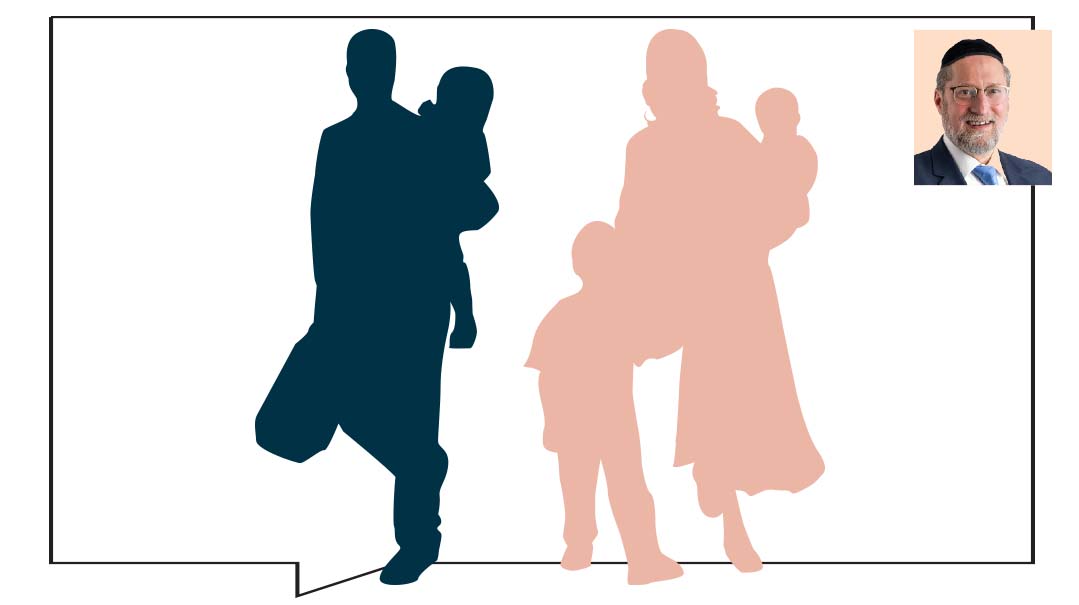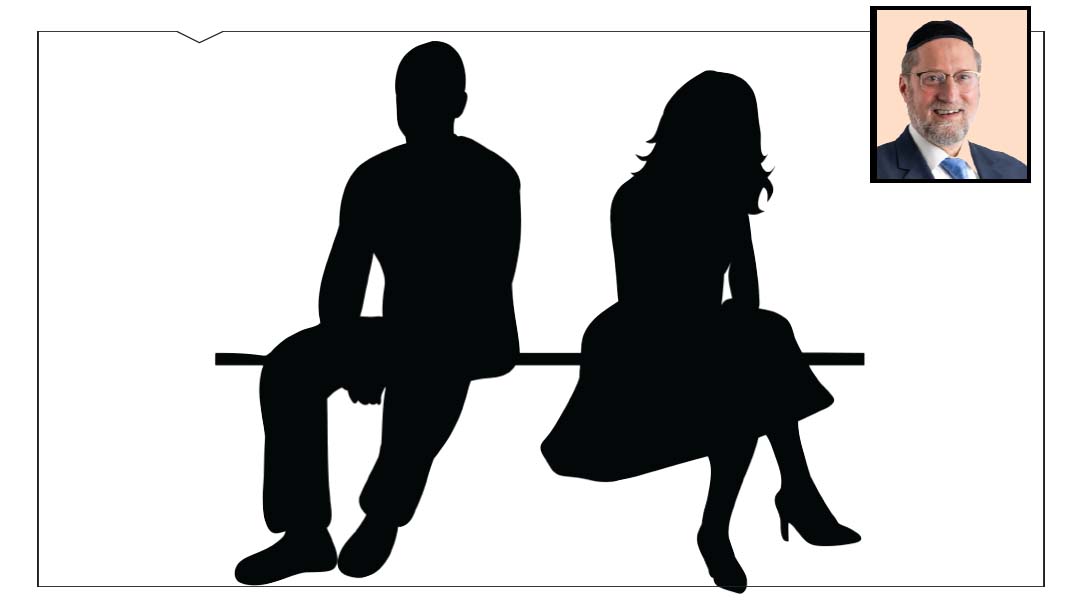“I’m Confused about the Whole ‘Ishah Kesheirah’ Concept”
| December 21, 2021It’s a bit ironic that this question was asked by a woman because I find that more often, women inadvertently become controlling in the marriage

Written with Zivia Reischer
Rabbi Shafier,
I’m very confused about the whole “isha kesheirah” concept. Does that mean that my husband is the boss and he can tell me what to do?
For example, he feels strongly that some of the contemporary Jewish music has a negative influence on a person. He can make the choice not to listen to such music, but does he get to demand that I don’t, either? I enjoy a lot of music that he thinks is unacceptable. I listen to it on my MP3 when I’m working out or doing housework rather than playing it aloud for the whole house to hear. We’re both okay with this arrangement.
Would it be better for me to stop listening to it altogether? Is a compromise okay? What if the situation were flipped, and he wanted to listen to this music and I wasn’t comfortable with it — would he have to bow his will to mine?
First, let me reiterate that it’s crucial that every family have a rav who can guide them according to daas Torah. A rav who knows you and the intricacies of your situation can guide you according to the laws and spirit of the Torah as they apply specifically to your circumstances. The discussion within these pages is only in general terms and can never cover the topic completely.
On a practical level, I find “equal partners with different roles” to be a good description of a successful and satisfying marriage.
No matter how similar a husband and wife may be, they are still different people and will have different opinions. As my face is different from your face, so too my mind is different from your mind (see Maharsha on Berachos 4a). So it’s inevitable that spouses will look at situations differently and have divergent judgments as to the right way to do things.
Even in a “perfect marriage,” there will be many issues that a couple disagrees about. Some are trivial (should we have milchig or fleishig tonight?), and some matter greatly (should we live in Israel or the US?). But whenever you’re in disagreement with your spouse, the question to ask yourself is, am I treating my spouse with respect?
If two people treat each other with respect, they can navigate any disagreement. Once the respect wanes, and either party becomes boss, dictator, rebbi, or mentor, the marriage will suffer.
Which brings us to the above question. My sense is that you found the perfect solution. Your husband’s viewpoint is reasonable. Your perspective is reasonable. So what’s the right answer? There is no “right” answer — just two friends working together to find the best way to accommodate both needs and perspectives. If the situation was reversed, and it was your husband who wanted to listen to music that you didn’t want in the house, the same compromise could work.
There is no point in splitting hairs about who is right and who is more right, or what exactly each person’s role used to be or could be or should be or will be when Mashiach comes. The goal is to resolve differences of opinion without hurting your spouse and damaging your marriage. To do that, remember that you are equal partners with different roles and that both husband and wife should treat each other with exceeding respect.
More than anything, you need to remember that your spouse is your closest friend, the one that you are responsible to love, help, and protect, as you share together this journey called life.
A Jewish marriage is a partnership, not a dictatorship.
The Maharal explains the words ezer k’negdo, the Torah’s description of Chavah’s role, as a “helpmate opposite him” — but opposite has two meanings: one is “different” and the other is “facing.” When it comes to a woman’s role, both of those meanings carry equal weight. He explains that this duality is what makes marriage so unique.
In most relationships there is a clear hierarchy, like between a parent and child, boss and employee, or rebbi and talmid. In a Jewish marriage, you are partners — equal partners with different roles. No one is in charge. No one has carte blanche. No one has veto power. No one has the right to say, “My way or the highway!” That works in a dictatorship, not in a marriage.
“Equal partners with different roles” means that you may delegate an area to one spouse (for instance, domestics to the wife and finances to the husband), but that’s a joint decision. Together, you decided on a division of labor. You both agree to let one spouse take the lead in that area. Nevertheless, you are equal partners.
It’s a bit ironic that this question was asked by a woman because I find that more often, women inadvertently become controlling in the marriage. It may have started out innocently enough, when during the early years they felt they were more competent or had to take control of a situation — but within a short amount of time many women become controlling and begin to feel that if they don’t take charge of an issue, it won’t get done. They forget the basic rule of both friendship and marriage: Friends don’t boss friends around.
Imagine it’s Yom Kippur, and in the middle of the day a woman comes home from shul and finds her husband sitting on the couch eating a ham sandwich and smoking a cigar. She does what any self-respecting woman would do: Screams, “Put that down right now! It’s Yom Kippur! What’s wrong with you?!”
I don’t have to tell you that what this fellow is doing is wrong. She has every right to be aghast and disappointed.
But what she did wasn’t right either, because she stepped outside her role as a friend and lover.
But, you might counter, he’s violating the most basic halachos! Doesn’t she have the right to demand that he stop?
Yes, she would have every right to demand that he stop if she were his: Rabbi. Mentor. Mother— or boss.
But that’s not what she is. She’s his life partner. She’s his friend. She’s his equal partner in this thing called marriage. But she’s not in charge of him. Not his manager. Not his rav.
She might have a choice to make. She may come to the recognition that this partnership is not what she contracted for. She may decide to end the partnership. But, as long as she’s in the partnership, she has no right to demand, command, or dictate.
And likewise, neither does he.
Sometimes, a husband or a wife takes on the role of rebbi, mentor, or teacher. They feel some moral obligation to make sure their spouse is frummer, or dresses better, or learns more, or eats in a particular way, or whatever. As rebbi, mentor, or teacher they may be doing a fine job, but as a life partner they are wrecking their marriage.
But aren’t there things that are worth putting your foot down about?
There are many things worth putting your foot down about and there are many relationships where that’s called for. A teacher and student. A boss and employee. A judge and a defendant. But not in marriage. Marriage is a relationship of best friends who love each other.
Friends discuss things. Friends negotiate matters. Friends reach compromises. Friends don’t threaten, intimidate, or bully one another. “Putting your foot down” violates the terms of agreement of marriage. By doing so, one partner has transformed the relationship to boss and employee or judge and defendant. You might win this battle but you will lose the war — and it will be war.
Rabbi Bentzion Shafier is the founder of TheShmuz.com, a life-changing mussar shiur that is available on TorahAnytime, The Shmuz Podcast and The Shmuz App. His newest book release, The Ten Really Dumb Mistakes That Very Smart Couples Make, is available on TheShmuz.com and will hit Jewish bookstores later this year.
(Originally featured in Mishpacha, Issue 891)
Oops! We could not locate your form.






